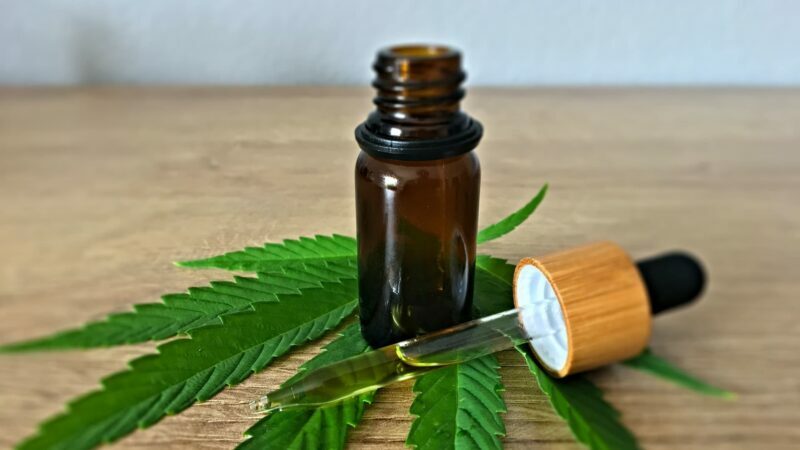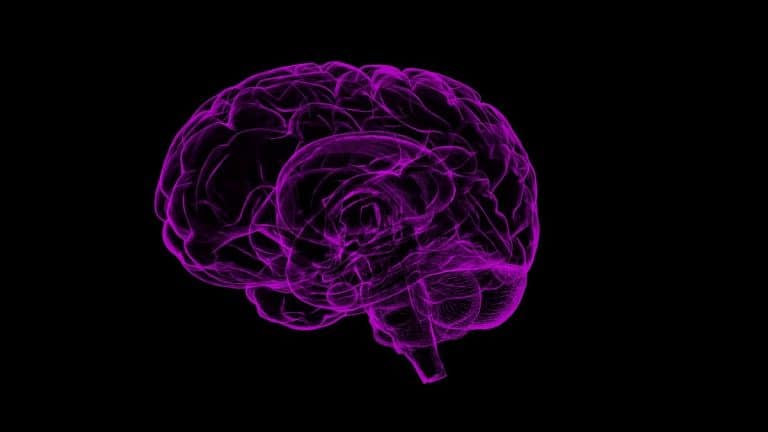What Is CBD Oil Good For & What Benefits Can You Expect

What is CBD oil good for? Practically everything! Humor aside, CBD oil is widely applicable for many conditions and is more and more recommended by physicians in the US and worldwide.
This article will discuss its benefits in treating various mental and physical issues, backed up by scientific studies.
Here’s why you should consider using CBD oil:
What Is CBD Oil Used For Generally
CBD oil is often advertised as a solution for anxiety, pain, inflammation, and depression. It’s also known to reduce seizure frequency in epilepsy patients.
Not only can cannabidiol be effective in relieving the symptoms of various medical conditions, but it can also help with skin problems. According to preliminary studies, CBD can effectively manage acne since it decreases sebum production.
In addition, studies show that CBD can reduce the side effects of cancer treatments, like nausea and vomiting.
Now, let’s get into more detail!
CBD Oil for Arthritis
While there are more than 100 types of arthritis, the most common types are osteoarthritis (affecting the knees, fingers, and hips) and rheumatoid arthritis (affecting the hands and feet).
The most typical arthritis symptoms are joint pain and stiffness, while you can also experience swelling, redness, and warmth.
Since arthritis usually occurs with age, it shouldn’t surprise you that many senior citizens have been shopping for CBD for arthritis. They mostly use CBD oil to help with pain and inflammation.
However, although animal testing indisputably shows relieving arthritis pain, human studies do not have such unanimous results.
For instance, a 2016 study on rats shows that the topical application of CBD can help treat arthritis-related pain and inflammation, as was the case with many similar studies over the years.
CBD and Anxiety
Anxiety is an emotion characterized by inner turmoil accompanied by nervous behavior. It is often accompanied by restlessness, muscular tension, fatigue, tightness in the abdominal region, breathlessness, and problems with concentration.
Is CBD oil good for anxiety? Many studies confirm CBD oil is beneficial for anxiety disorders — general anxiety, PTSD, obsessive-compulsive disorder, social anxiety, and panic disorder.
While the correct dosage will depend on the CBD product and its administration, a 2019 study shows that 300–600mg of CBD can significantly reduce anxiety symptoms.
To get the fastest (immediate) effects, you should smoke or vape CBD. Consuming oils, edibles, or capsules will take more time (30 minutes to 2 hours).
CBD Oil and Sleep Issues
According to studies, CBD can improve sleep patterns. On top of that, CBD oil for sleep works better for people with sleep disorders than for healthy individuals.
In terms of CBD type, full-spectrum products — those containing traces of THC — seem to have a better effect on insomnia because they can reduce sleep latency. Moreover, CBD oil can be complemented with more sleep-inducing substances such as melatonin, for example.
Regarding the dosage, start with 10–20mg, and increase the dosage gradually.
CBD Oil and ADHD
ADHD, or attention deficit hyperactivity disorder, is a behavioral, mental, and neurodevelopmental disorder characterized by bouts of excessive energy, inattention, impulsivity, and hyper-fixation.
There’s a plethora of anecdotal evidence and small studies that CBD oil for ADHD could potentially be used with success. For example, a 2017 study shows a slight improvement in brain function and symptom reduction in patients taking cannabis medication (Sativex).
On the other hand, a 2020 study suggests that higher doses of cannabinol (CBN) can lower the use of ADHD medication in adults.
CBD Oil and Depression
Depression is a state of aversion to activity and low mood. The main symptom of depression is anhedonia, i.e., the inability to feel pleasure. Depression can be short-term or long-term.
In addition, a depressed mood is a symptom of mood disorders like dysthymia or major depressive disorder.
Is CBD oil good for depression? Fortunately, research shows it can be used as a great aid in fighting this dangerous disorder. One of its key features is that it doesn’t cause addiction or loss of energy.
On the contrary, ubiquitous antidepressants such as Prozac come with many side effects (nausea, dry mouth, insomnia, erectile dysfunction, blurred vision, etc.). Besides complicating one’s life, they can also lead to addiction.
CBD Oil for Cancer
Generally, the biggest buzz concerning CBD oil revolves around its application for cancer.
Cancer statistics are somewhat depressing, with forecasts given by the American Cancer Society telling us that 1.9 million Americans are likely to get into the fight for their lives this year.
However, a small ray of hope can be seen in the form of CBD.
It is vital to note that you need to differentiate between CBD and cannabis oil when talking about CBD effects. For example, there have been some cases where cannabis appeared to have worsened cancer symptoms (in some cases, it encouraged cancer cells to grow). However, that is mainly connected with marijuana oil containing THC, not pure CBD oil.
The latter has been beneficial in several ways: pain treatment, stopping cells from dividing, helping with paranoia, and counteracting the THC-caused “high.”
Is CBD oil good for nausea caused by chemotherapy? CBD can help alleviate nausea because it reacts with serotonin receptors, according to studies. However, its cousin — THC — does most of the heavy lifting in this case. The FDA approved two synthetic cannabis-derived drugs for chemotherapy-related symptoms — Nabilone and Dronabinol.
With that in mind, full-spectrum oil is more effective at reducing nausea than pure CBD containing zero THC.
Nevertheless, more research should be done to determine the exact effects of CBD oil on cancer.
CBD Oil and Migraines
A migraine is a headache disorder characterized by repeated headaches. The pain usually affects one side of the head and can last from a few hours to three days. Its main symptoms include vomiting, nausea, and sensitivity to light, smell, or sound.
Although studies on CBD oil for migraines are limited due to legal restrictions on cannabis, a studies’ review suggests that cannabis might help with migraine treatment.
In addition, one of CBD’s benefits is eliminating nausea, which often accompanies the intolerable headache.
CBD Oil for Pain
Pain can be defined as a distressing feeling caused by intense or damaging stimuli. Pain can be acute (short) or chronic (it lasts a long time).
As mentioned before, CBD is known for its anti-inflammatory properties. Likewise, studies on cancer pain, neuropathic pain, and fibromyalgia show effective overall pain management. And most importantly, CBD doesn’t cause adverse side effects.
How to use CBD oil for pain? We recommend using topical CBD products (lotions, creams, balms) for local pain since you can apply them directly to the skin. Edibles work better than tinctures or topicals if we’re talking chronic pain that prevents you from sleeping, for instance. For immediate effect, you could try vaping or smoking CBD flowers. Essentially, the application depends on the type of pain.
Is CBD Oil Good for Back Pain?
Based on research, CBD can reduce back pain by reducing inflammation, anxiety, and helping with insomnia. Also, CBD can alleviate pain in specific areas when used as a topical product.
Namely, the results of a 2020 trial on topical cannabidiol oil show a significant reduction in intense and sharp pain among the group of people who were given CBD.
At the same time, CBD topicals provide quick pain relief when applied to a specific area.
Is CBD Oil Good for Joint Pain?
As specified by a 2017 study on rats with osteoarthritis, CBD has the potential to treat joint pain. Moreover, anecdotal evidence also supports this idea, as seen from the Arthritis Foundation poll.
For instance, 94% of participants used CBD to help them deal with pain, and 67% reported it improved their overall physical functioning. Moreover, 62% of participants used liquid CBD products, and 55% used topical CBD products for joint pain.
To conclude, there are many CBD oil benefits for pain. It can help with arthritis pain, chronic pain, and neuropathic pain. How long will it take to work? It depends on the method of consumption, the percentage of CBD in the product, your body weight, and your chemistry.
Using a sublingual method, you’ll feel its effects within 15 to 45 minutes. If you decide to go with edibles, it will take an hour. What’s more, CBD’s effects usually last 2 to 6 hours.
CBD and Hypertension (High Blood Pressure)
Hypertension or high blood pressure is characterized by elevated blood pressure in the arteries. It can cause stroke, heart failure, coronary artery disease, atrial fibrillation, vision loss, and chronic kidney disease.
Is CBD oil good for high blood pressure? Based on a 2017 study, 600mg of CBD oil can reduce resting blood pressure. As per animal studies, CBD can diminish the inflammation and cell death linked to heart disease.
CBD Oil and Diabetes & Cholesterol
Diabetes or diabetes mellitus is a group of metabolic disorders characterized by high sugar levels in the blood. Diabetes can cause numerous health complications (if not treated), such as stroke, chronic kidney disease, foot ulcers, etc.
Is CBD oil good for diabetes too? The studies show that THCV can significantly decrease fasting plasma glucose. Hence, CBD could potentially reduce insulin resistance in people with type 2 diabetes.
What about cholesterol? Studies on mice suggest that CBD oil can lower cholesterol and “bad fat” levels. It can also increase insulin production and cut down hyperglycemia.
At the same time, other studies indicate that CBD and THC have different effects. For example, while CBD alone wasn’t successful in improving blood sugar and lipid levels in type 2 diabetes patients, a variation of THC did.
CBD Oil for Epilepsy
Epilepsy is a neurological disorder followed by recurrent epileptic seizures caused by genetic and acquired factors. However, the cause is unknown in roughly 60% of cases.
CBD has become widely renowned for its benefits that children can also use.
A recent study shows positive experiences among children and adults, especially in extreme cases, bringing much-needed hope.
Is CBD oil good for seizures? In some cases, yes. In others, not so much. Studies have shown that cannabis products can increase the frequency of seizures in some patients (due to THC). Therefore, it’s vital to talk to your doctor before using CBD products.
That said, the FDA has finally said yes to Epidiolex, a medicine derived from the cannabis Sativa plant, approved for helping children with Lennox-Gastaut and Dravet syndromes (severe illnesses with extreme seizures).
While CBD oil benefits appear to be invaluable for epilepsy, you should also know that CBD can interact with other medications for seizures.
In short, you should never mix CBD with:
- brivaracetam
- clobazam
- eslicarbazepine
- stiripentol
- rufinamide
- topiramate
- valproic acid
- zonisamide
Remember that CBD is not a replacement for traditional medications.
Side Effects of CBD Oil
The most common CBD oil side effects include dry mouth, diarrhea, reduced appetite, drowsiness, and fatigue.
On top of that, you must be aware that CBD can interact with other drugs. In other words, it should never be mixed with:
- Clobazam (Onfi)
- Valproate
- Zonisamide
- Topiramate
- Sedative medications
- Rufinamide
- Medications that increase/decrease the breakdown of other drugs by the liver
- Medications that decrease the breakdown of other drugs in the liver
- Medications changed by the liver
Regarding the CBD oil side effects on kidneys, studies on mice show that high doses of CBD can potentially damage the liver. Nevertheless, since the research is still in its early phase, we lack information on how it happens.
Be that as it may, you must always take precautions when taking medications in high doses, and the same rule applies to CBD products. Again, consulting with your doctor is a must.
Conclusion
CBD oil is used for many diseases, ranging from something as serious as cancer and epilepsy to arthritis and anxiety.
Unlike many medications, CBD comes with mild side effects. However, since it can interact with other drugs, you must consult your doctor before adding CBD to your medical routine.
While not all of its uses have been backed up by research, we can hope for more remarkable results in the future, with even more conditions being added to the list.
FAQs
Is CBD oil legal?
Ever since the Hemp Bill has officially been adopted, it has been 100% legal in the whole country to buy CBD oil derived from the hemp plant.
This is why reading about the origin of the CBD content in the product you are buying is crucial.
What do you use CBD oil for?
While you can use CBD oil as a potential treatment for many disorders, it’s most famous for its pain-relieving and anti-anxiety properties. Many arthritis patients use CBD topicals to help them with pain and inflammation.
How does CBD oil make you feel?
As CBD is not a psychoactive substance, you cannot expect it to make you “stoned.” Essentially, it should make you feel less anxious, depressed, relieved of pain, and ultimately happy if it has aided your condition.
Does CBD oil help with cancer symptoms and pain?
Yes, and it can help in several ways. CBD oil can successfully treat nausea, pain, vomiting, and other symptoms of cancer and chemotherapy. There is even some evidence of CBD killing cancer cells.
Does CBD oil for weight loss really work?
In its nature, CBD has the potential to play a significant role in fighting obesity. However, more thorough research is needed on the topic to confirm this claim.
For example, studies imply that CBD can boost metabolism and reduce appetite and body fat. In contrast, others suggest it can increase appetite.
On that note, we can’t say for sure that CBD oil is effective in losing weight.
How long does it take for CBD oil to work?
It can take from a few minutes to two hours or more. It all depends on the method of consumption (capsules, creams, liquids, edibles, etc.). The state of your overall health is a deciding factor, as well.
Is CBD vape oil better than the others?
Vaping CBD oil is the fastest absorbing way to enjoy its effects for most people. That is particularly important when you need a quick and efficient treatment. For example, people suffering from migraines often choose this kind of CBD consumption.
Why is CBD oil for pain management so popular?
First of all, CBD oil is popular because it addresses different types of pain. From minor uncomfortable feelings to chronic pain. Secondly, as opposed to common painkillers, CBD oil does not entice addiction or drug intoxication.
And lastly, its ability to be gradually absorbed over time is very much appreciated by the people who tend to feel pain for hours.
What is the downside of CBD oil?
Like many other drugs, CBD oil can also cause adverse side effects. Drowsiness, dry mouth, reduced appetite, fatigue, and diarrhea are the most common. Likewise, CBD can interact with other medications, like blood thinners.
Another downside of CBD oil is its taste and no FDA approval. Regarding the flavor, its earthy taste might not be everyone’s cup of tea. Since it’s not FDA-approved, it’s not as accessible or easy to dose like other medications.
Does CBD oil actually do anything?
From a scientific point of view, CBD helps our bodies to function on a more optimized level. In other words, it can work as a supplement.
Studies on humans and animals also show that CBD can help us deal with the symptoms of mental illnesses, such as anxiety and depression. How? By balancing our serotonin levels.
Not only that, but CBD can also improve our mood, increase our focus, and give us mental clarity. Best of all, seeing how CBD has no psychoactive effects, it won’t get you high!
What is CBD oil good for in your particular case? You’ll just have to try it out and see!





